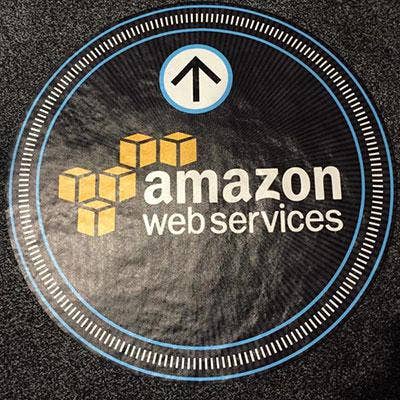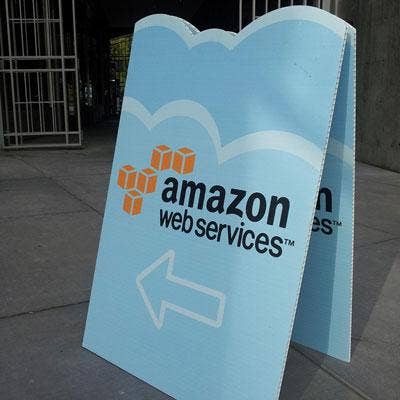6 Key Things To Know About Amazon Web Services' 'Sentinel' Managed Services Offering

The Secret Sentinel Service
Amazon Web Services is developing a top secret self-service managed services offering, code-named Sentinel, which could let large enterprise customers manage and monitor their public cloud workloads independently, sources with knowledge of the project told CRN in mid-April.
AWS is said to be working on Sentinel because some of its largest customers are asking for it. While AWS isn't easy to use for non-experts, most Fortune 500 firms have IT teams equipped to navigate its complexities, and many are deciding self-service cloud management is the way to go.
In talking with partners about Sentinel, AWS has indicated the service is designed for only a narrow range of scenarios. Nevertheless, some managed service providers that have built businesses around migrating, managing and automating enterprise workloads to the AWS cloud see Sentinel as a potential competitor.
AWS isn't commenting on Sentinel but did note in a statement to CRN last week that it always builds products and services with partners in mind.
Following are six important points about the AWS Sentinel offering and its potential impact on the MSP channel.

6. Amazon Is Hiring Staff To Run And Support Sentinel
In job listings posted to third-party job websites in recent months, AWS referred to an "AWS Sentinel support product offering" and a "Sentinel operations team," according to cached versions of those pages in Google search results.
Those listings have since been edited to read "AWS Services" instead of "Sentinel." AWS typically comes up with thoughtful and original names for its products, but this completely simple, even redundant approach would seem to go against that pattern.
AWS also apparently intends to make Sentinel available in a variety of geographical locations. In one job listing for a senior manager, the cloud vendor lists as a requirement the ability to "ensure the AWS Services support product offering reflects the needs of the regional market."
Sentinel is said to exist because big AWS multinational customers want it, and so it would make sense that a senior position involved in supporting the product would need to be savvy enough to know what matters most to customers in certain geographical regions.

5. Some AWS Partners May Consider Microsoft Azure, Google Cloud Platform
AWS has a number of partners whose businesses revolve only around its public cloud, and these firms generally have done well as marketplace demand for services increases.
Yet Sentinel could cause some of these partners to form partnerships with Microsoft and Google -- the other two members of the Big Three in public cloud -- as an insurance policy in case AWS does end up competing with them for managed services business. IBM SoftLayer could see an uptick in partners as well.
"If [AWS Sentinel] balloons and gets bigger, the AWS partner community won't have a choice but to support multiple clouds," said one AWS partner.
Microsoft has been stepping on some toes in recent years by providing free data migrations for email and other apps directly to Office 365 customers, but in general, the software giant is still one of the more channel-friendly vendors in the enterprise IT space.
As for Google, the jury is still out. VMware co-founder and former CEO Diane Greene is now leading Google's cloud business and is saying all the right things about wanting the channel to drive cloud business, but it's too early to tell whether Google's still-small partner base will be able to capitalize.

4. Some AWS Partners Think Sentinel Will Be Difficult To Build
Several partners CRN spoke with recently said they believe AWS will face a tough task in building Sentinel, mainly because managed services isn't one of its core businesses.
While AWS certainly has the engineering resources and technical vision to build anything it wants to, several partners pointed out that managed services is difficult to automate because workloads often involve a high degree of customization, making a self-service MSP platform difficult to pull off.
"The operations piece of managed services is extremely difficult," said one partner. "Operations doesn't fit into a neat box -- it's very unique to the customer."
Sentinel will work for only a "very small percentage" of enterprise workloads, another partner said. "A lot of the workloads and products and services out there won't be able to use it effectively. It's tricky and it won't be easy for AWS to build it correctly.

3. Sentinel Apparently Will Be Sold Through (Some) AWS Partners
AWS is said to be developing Sentinel in response to a growing call from some of its largest customers, and it plans to sell the Sentinel offering directly to these firms, according to CRN's sources.
"If you're a multinational company and you have some workloads that fit, and you would rather have AWS managing your infrastructure than someone else, you'll be able to buy Sentinel directly from AWS," one source with knowledge of the offering told CRN.
However, Sentinel will also be sold through a small number of AWS partners worldwide, who are currently kicking the tires on a beta version of the product, said the sources. These AWS partners, sources said, will handle implementation for Sentinel, helping customers get the service up and running in their environments before handing them the keys, so to speak.
While these partners will still make money from project engagements, it's unclear how much ongoing business, if any, they'll be able to get from Sentinel once customers are using it to manage and monitor their own workloads.

2. AWS Isn't Confident All Of Its Partners Really 'Get' Cloud Managed Services
AWS has been saying for years that it needs more cloud managed services talent in the channel, and it launched an MSP program -- with extremely detailed and exhaustive requirements -- last year in a bid to address that shortage. While the program has attracted a steady stream of interested partners, sources told CRN that AWS still isn't sure they're able to serve enterprises.
"AWS believes that their MSPs aren't mature enough to handle large customers, so they only really want to work with a few at the top end," said one source close to AWS.
AWS partners that have invested heavily in areas like cloud orchestration and DevOps are best positioned to succeed, but traditional MSPs that aren't focused on creating their own unique technology might find themselves left behind, sources told CRN.
"MSPs need to work with customers to convert their infrastructure to Platform-as-a-Service using microservices architecture," said one AWS partner. "They also need to bring DevOps into the heart of the organization. Unfortunately, most MSPs don't have the developers that truly understand this."

1. Few AWS Partners Are Really Surprised By Sentinel's Emergence
If there's a common theme to partner reactions to AWS Sentinel, it's that no one can say they didn't envision such a scenario coming to pass. Everyone knows that AWS is obsessed with its customers and consumed by a never-ending drive for greater efficiencies. Plus, AWS has a track record of introducing new products and services that compete with partners' own offerings -- like in 2009, when it debuted cloud management technology that put partner RightScale on its heels.
Most AWS partners have accepted that risk as part of the reality of doing business with AWS. "You need to be two steps ahead of AWS if you're creating technology that lives on their platform and works in their ecosystem," one partner told CRN.
But some AWS partners believe this competitive dynamic is actually a good thing, because it forces everyone -- vendor and partner -- to be their best. So instead of complaining about Sentinel, some partners are buckling down and focusing on differentiating their business.
"I’d say for any partner of AWS [SI or Tech], expect AWS to offer 80 percent of what you do and find your 20 percent that makes you different, and focus on its future," one AWS partner said.